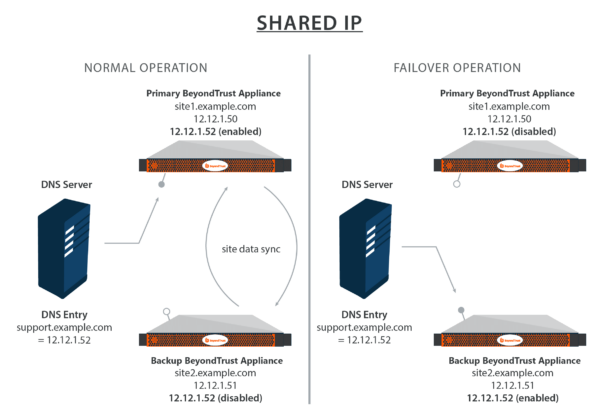Shared IP Address refers to an internet protocol (IP) address that is used by multiple users simultaneously. In the context of VPN services, a shared IP address is allocated to multiple users to anonymize their online activities and enhance privacy. This article delves into the intricacies of Shared IP Addresses, exploring their features, types, uses, challenges, comparisons, future prospects, and their association with VPN technology.
A Shared IP Address is a single IP address assigned to multiple users rather than being dedicated to a single user. This approach helps distribute internet traffic across various users, making it more challenging for third parties to track individual online activities. Shared IP Addresses are commonly used in VPN services to mask users’ true IP addresses, thereby enhancing their online anonymity and privacy.
Shared IP Addresses offer several key features that make them valuable in the realm of online privacy and security:
- Anonymity: By using a shared IP address, users can obfuscate their online footprint, making it difficult for websites and third parties to trace their activities back to their original IP address.
- Privacy: Shared IP Addresses help protect users’ privacy by pooling their internet traffic with others, preventing individual identification.
- Security: By masking users’ IP addresses, Shared IP Addresses provide an additional layer of security against potential cyber threats and attacks.
- Cost-effectiveness: Shared IP Addresses are more cost-effective for VPN providers as they can accommodate multiple users with a single IP address, reducing infrastructure costs.
Shared IP Addresses can be categorized into two main types based on their allocation method:
- Static Shared IP Addresses: These addresses are assigned to users from a pool of IP addresses and remain constant each time a user connects to the VPN server.
- Dynamic Shared IP Addresses: These addresses are dynamically assigned to users from a pool of available IP addresses each time they connect to the VPN server.
| Type | Description |
|---|---|
| Static Shared IP | Assigned from a static pool of IP addresses, remains constant per user. |
| Dynamic Shared IP | Dynamically allocated from a pool of available IP addresses. |
Shared IP Addresses can be utilized in various ways to enhance online privacy, security, and accessibility:
- Browsing Anonymity: Users can browse the internet anonymously by masking their true IP address with a shared IP address, preventing websites from tracking their online activities.
- Accessing Geo-restricted Content: Shared IP Addresses enable users to bypass geo-restrictions and access content that may be restricted in their region.
- Protecting Sensitive Information: By using a shared IP address, users can protect sensitive information such as their location and browsing habits from unauthorized access.
Challenges and Solutions
While Shared IP Addresses offer numerous benefits, they also pose some challenges:
- Bandwidth Limitations: Shared IP Addresses may experience bandwidth limitations due to the simultaneous usage by multiple users.
- Potential IP Blocking: Websites may block shared IP addresses, resulting in restricted access to certain online services.
To mitigate these challenges, VPN providers employ various strategies such as load balancing, rotating IP addresses, and offering dedicated IP address options for users who require uninterrupted access.
Characteristics and Comparisons
| Characteristic | Shared IP Address | Dedicated IP Address |
|---|---|---|
| Usage | Shared among multiple users | Exclusively assigned to a single user |
| Anonymity | Higher anonymity due to shared usage | Lower anonymity as it is unique to user |
| Cost | More cost-effective | Generally more expensive |
Future Perspectives
The future of Shared IP Addresses is intertwined with advancements in VPN technology and the evolving landscape of online privacy and security. As internet censorship and surveillance continue to escalate, the demand for shared IP addresses and VPN services is expected to rise. Additionally, innovations in encryption protocols and network infrastructure will further enhance the effectiveness and reliability of shared IP address systems.
VPN technology plays a pivotal role in the utilization of shared IP addresses by providing a secure and encrypted connection between users and VPN servers. By routing internet traffic through VPN servers and assigning shared IP addresses, VPN services enable users to browse the internet anonymously and securely.
Resources
For more information about Shared IP Addresses and VPN technology, refer to the following resources:
- “Understanding IP Addresses” – Internet Assigned Numbers Authority (IANA)
- “VPN Encryption Protocols Explained” – Electronic Frontier Foundation (EFF)
- “The Impact of VPNs on Online Privacy” – Center for Democracy & Technology (CDT)


